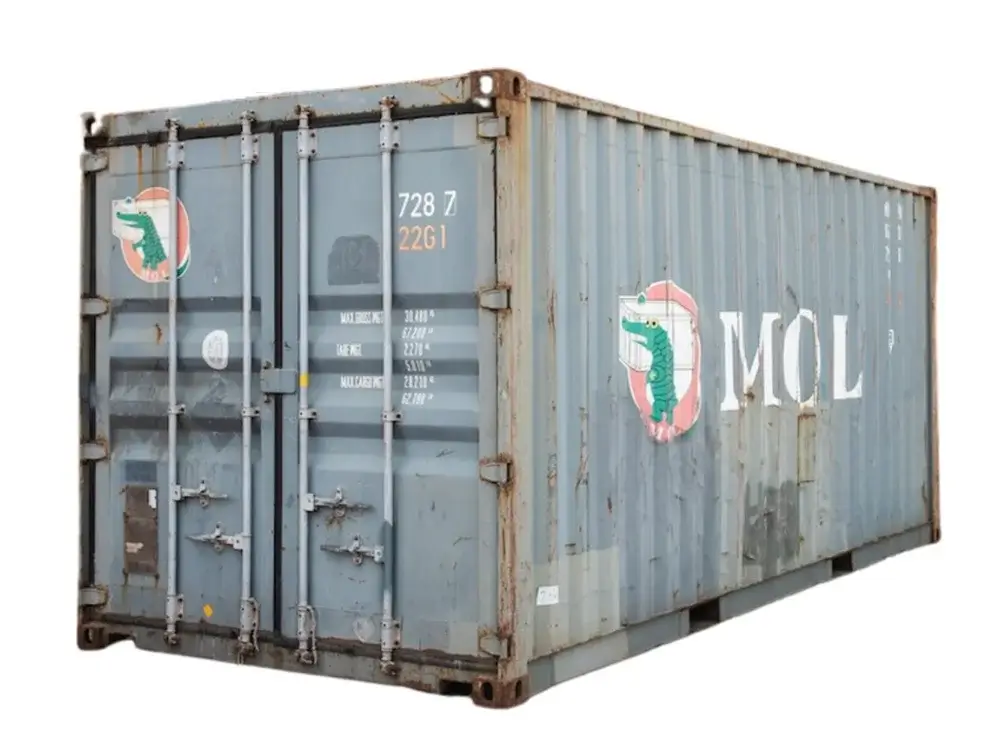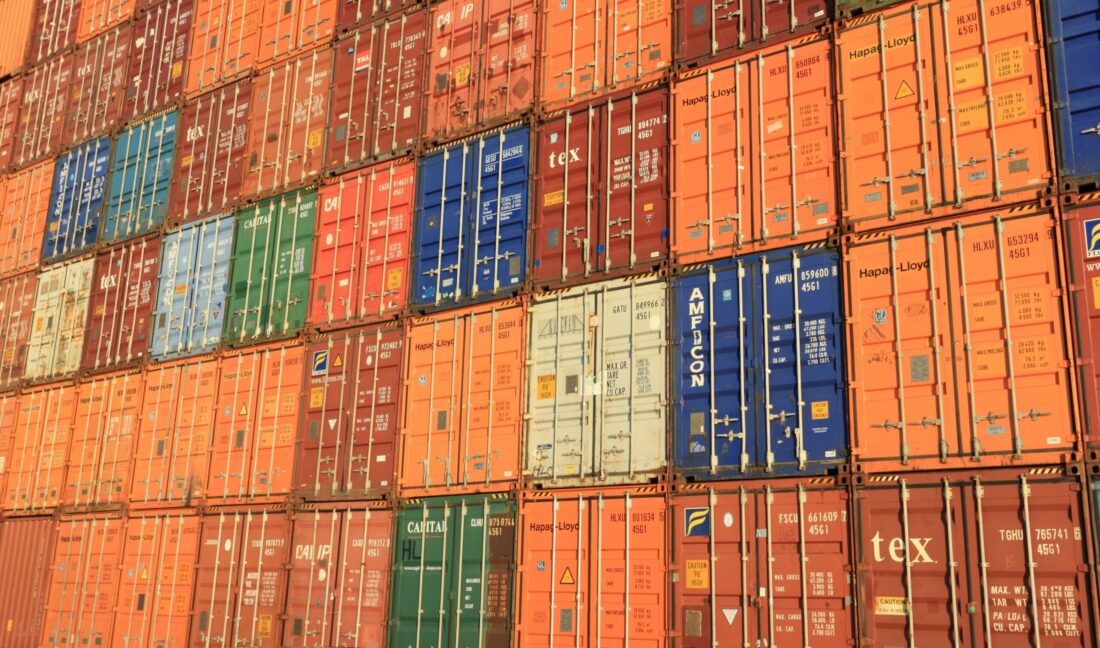How homeowners are choosing shipping container storage for affordable solutions
Every little thing You Need to Understand About Shipping Containers and Their Practical Applications
Shipping containers have developed from mere devices for transportation to functional structures with many practical applications. Their robust layout and typical sizing make them ideal for a variety of usages beyond shipping. From cutting-edge real estate options to lasting farming, their versatility is notable. The opportunities do not finish there. Exploring their various features exposes unexpected insights right into creative services and modern-day obstacles. What other functions could these containers play in today's world?
The Style and Framework of Shipping Containers

Inside, containers are designed to make the most of area, typically including wooden or steel flooring that can sustain considerable weight. Air flow systems may be incorporated to avoid dampness buildup, which is important for sensitive cargo. Additionally, enhanced edges permit simple handling by cranes and forklifts, helping with seamless loading and unloading. This thoughtful style and framework add to the containers' flexibility throughout different shipping and storage space applications.
Benefits of Using Shipping Containers
While several transport techniques have their benefits, using shipping containers stands apart because of their unrivaled adaptability and efficiency. Shipping containers offer a standardized dimension, making them very easy to pile and transfer throughout different modes of transport, including trains, vehicles, and ships. This standardization lowers filling and discharging times, thus raising general efficiency.
Shipping containers are constructed from sturdy products, giving robust security for items during transit. They are safe and weather-resistant, minimizing the risk of damages from environmental variables or theft. Furthermore, the modular layout of delivery containers enables very easy personalization, enabling organizations to adapt them for numerous functions, such as storage or mobile offices.
Their transportability and cost-effectiveness make delivery containers an attractive option for businesses looking to improve logistics and supply chain operations. These advantages add to the growing popularity of delivery containers in numerous sectors.
Creative Real Estate Solutions With Shipping Containers
Cutting-edge housing services have arised as an amazing application of shipping containers, leveraging their integral toughness for household use. These flexible structures supply a lasting choice to standard structure products, frequently at a fraction of the price. Architects and developers have transformed containers right into trendy, practical homes, accommodating varied way of livings and choices.

Shipping containers are environmentally friendly, promoting recycling and lowering waste. Many projects concentrate on energy effectiveness, integrating solar panels and green roofings. As urbanization boosts, these ingenious real estate services provide a useful response to real estate lacks while promoting an one-of-a-kind building visual.
Shipping Containers in Retail and Pop-Up Shops
A growing variety of sellers are turning to shipping containers as a vibrant service for retail areas and pop-up shops. These flexible structures provide a cost-effective alternative to typical storefronts, enabling services to produce one-of-a-kind, eye-catching environments that bring in consumers. Their modular layout enables easy transportation and installation, making them ideal for seasonal or short-term retail areas.
Merchants can tailor shipping containers to reflect their brand identification, changing them into visually appealing shops that stand apart in crowded marketplaces. The small nature check my reference of containers also encourages effective usage of space, permitting creative designs that maximize client circulation and engagement. Shipping containers can be situated in unique areas, such as urban parks or vacant lots, raising accessibility and foot traffic.

As the retail landscape progresses, delivering containers provide a flexible and cutting-edge service that fulfills the needs of modern consumers while improving the buying experience.
Lasting Farming Practices Utilizing Shipping Containers
Sustainable farming techniques significantly incorporate delivery containers as cutting-edge services for agriculture - shipping containers for sale near me. These container ranches use hydroponics to take full advantage of area and source effectiveness, providing an economical method to food production. By changing delivery containers into farming centers, farmers can attend to food safety and security and ecological problems at the same time
Container Farming Benefits
While conventional farming encounters challenges such as land shortage and environment change, container farming provides a practical option that optimizes area and sources. This innovative method permits year-round crop production in controlled environments, lowering dependence on climate condition. Container farms use much less water than standard farming, promoting sustainability and conservation. They can be developed in city areas, bringing fresh fruit and vegetables closer to consumers and minimizing transportation discharges. Additionally, the modular nature of delivery containers allows scalability, allowing farmers to readjust operations based on need. Container farming additionally lessens pesticide use by developing a confined environment, eventually improving food safety and security. As metropolitan populaces expand, container farming becomes a functional option to fulfill the raising demand for neighborhood, lasting food sources.
Hydroponics in Containers
Hydroponics, which permits plants to grow without dirt by utilizing nutrient-rich water, prospers within the confines of delivery containers, making it an ideal approach for urban agriculture. These containers create a regulated atmosphere that optimizes moisture, temperature level, and light, making it possible for year-round farming. With restricted space in urban locations, delivering containers offer a scalable solution for growing fresh fruit and vegetables. Hydroponic systems within containers can consist of different techniques, such as nutrient film strategy (NFT) and deep water society (DWC), which make best use of yield while reducing water usage. This ingenious technique not only improves food safety and security yet also minimizes the carbon footprint related to standard farming techniques. Hydroponics in containers represents a forward-thinking service for sustainable city food production.
Cost-Effective Farming Solutions
As food manufacturing deals with enhancing difficulties because of climate change and urbanization, delivering containers arise as a cost-effective service for agriculture. These functional structures can be repurposed for numerous sustainable farming methods, such as hydroponics and vertical farming. By utilizing controlled environments within containers, farmers can enhance growth cycles and decrease source consumption, including water and plant foods. Furthermore, delivering containers can be tactically positioned in urban areas, reducing transport prices and boosting access to fresh fruit and vegetables. Their modular nature enables scalability, making it possible for farmers to increase procedures as need expands. Repurposing containers adds to waste decrease, aligning with green agricultural initiatives. Overall, shipping containers existing cutting-edge chances for lasting and efficient food manufacturing.
Emergency and Catastrophe Alleviation Applications of Shipping Containers

Organizations often make use of delivery containers to develop mobile clinics or field medical facilities, ensuring that healthcare reaches those in demand. In addition, they can be changed right into command centers for coordinating rescue procedures, thereby enhancing organizational efficiency during crises.
Containers can be customized to keep important goods such as water, food, and garments, guarding supplies up until they are dispersed. Their movement permits them to be easily delivered webpage to numerous locations, making sure that help gets here where it is most quickly needed. In general, shipping containers play an essential duty in improving the performance of disaster alleviation campaigns worldwide.
Often Asked Concerns
Exactly How Are Shipping Containers Transported From One Location to An Additional?
Shipping containers are transferred through trucks, trains, and ships, making use of cranes for loading and unloading. This multi-modal transport system makes sure efficient activity throughout land and sea, connecting global supply chains and facilitating international trade.
What Is the Average Life Expectancy of a Shipping Container?
The ordinary life-span of a shipping container typically varies from 10 to 25 years, depending on upkeep, usage, and environmental variables. Appropriate treatment can prolong their use, while forget might lead to degeneration and damage.
Can Shipping Containers Be Modified for Different Usages?
Yes, shipping containers can be customized for numerous uses. They function as homes, workplaces, pop-up shops, and storage systems. Their flexibility permits creative adjustments, making them appropriate for a vast array of applications.
Are Shipping Containers Environmentally Friendly?
Shipping containers can be environmentally pleasant, as they promote repurposing and reusing. Their resilience lowers waste, while their use in alternative real estate and services lessens the need for new products, contributing to lasting methods.
How Do I Choose the Right Size Shipping Container?
To pick the right size shipping container, one need to analyze storage space requirements, take into consideration the intended use, and assess room availability - shipping containers for sale near me. Typical you could check here dimensions consist of 20-foot and 40-foot containers, each serving various storage space and transportation requirements successfully
Ingenious housing remedies have actually arised as an interesting application of shipping containers, leveraging their fundamental staminas for property usage. The flexibility of shipping containers enables for creative layouts, from single-unit houses to intricate multi-container arrangements. Lasting farming methods increasingly incorporate shipping containers as innovative options for farming. In addition, the modular nature of delivery containers enables scalability, allowing farmers to change operations based on demand. Hydroponics, which enables plants to expand without dirt by using nutrient-rich water, grows within the boundaries of delivery containers, making it an excellent approach for city farming.